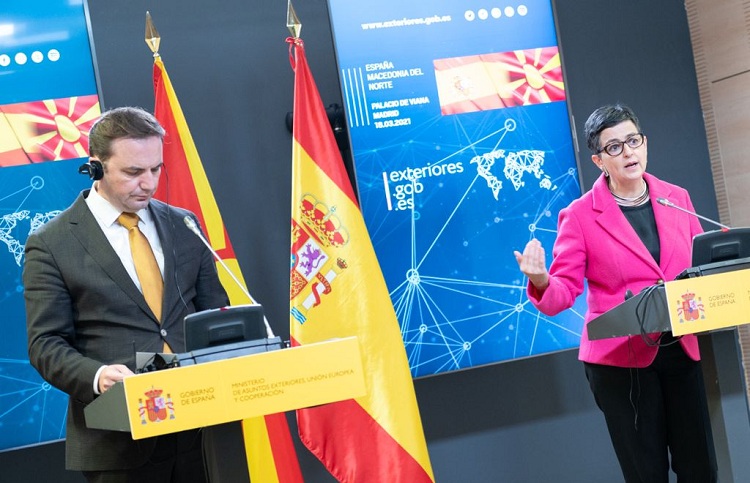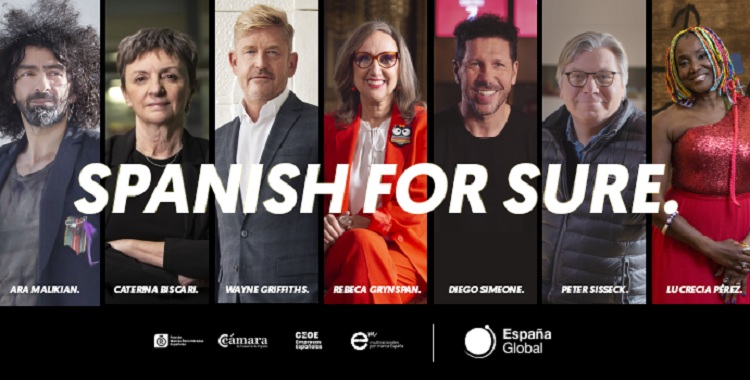Eduardo González
The Minister of Foreign Affairs, Arancha Gonzalez Laya, expressed yesterday to her North Macedonian counterpart, Bujar Osmani, Spain’s wish that the negotiations for the entry of North Macedonia into the EU begin “before the summer”.
Gonzalez Laya received Osmani yesterday in Madrid at the ministerial headquarters of the Palacio de Viana coinciding with “the ratification a year ago, by Spain, of the protocol of accession of North Macedonia to NATO”, as recalled the Spanish minister at the joint press conference following their working meeting. On March 17, 2020, a Senate practically empty because of the state of alarm due to the coronavirus ratified the incorporation of North Macedonia into the Atlantic Alliance in an almost absolutely telematic vote and just one day before the deadline for our country to give the green light to the new NATO partner (the cause of the delay had been the parliamentary dissolution due to the elections of November 2019). Bujar Osmani himself recalled yesterday at the press conference that vote “by videoconference” in the Senate. “It was the first time that something like that was done and it set a precedent and, for that reason, we North Macedonians will always carry Spain in our hearts“, he declared.
Likewise, González Laya assured in the press conference that she had conveyed the “full cooperation of Spain” to facilitate the arrival of vaccines against COVID-19 to Macedonia through the COVAX mechanism” and informed that the two Governments had signed a cooperation agreement between the diplomatic schools of both countries and had committed to “establish a work plan to boost the economic diplomacy between the two countries”, because “the exchanges are far below their potential” and it is necessary “a work plan to promote a greater presence of Spanish companies in North Macedonia”.
On the other hand, the Minister expressed Spain’s wish that the negotiations for the entry of North Macedonia into the EU begin “before the summer”, because “the future of North Macedonia is in the EU”. For this reason, she warned, it would be “useful” to find a solution to the current identity conflict between this country and Bulgaria so that the process can be unblocked.
EU member states gave the green light to start negotiations just over a year ago, in March 2020, but the process has been stalled since last December because of Bulgaria’s decision to veto North Macedonia’s entry into the European Union. Behind this conflict lie identity differences between the two countries. The North Macedonians claim their language and history as their own, while the Bulgarians claim that the language is a dialect of Bulgarian and that the two countries shared the same history until well into the 20th century. This is not the first identity problem faced by the former Yugoslav country, which was forced to add the term “North” to its name to avoid Greece’s veto.
“The March 2020 decision was by consensus and was therefore also supported by Bulgaria”, Bujar Osmani assured. “EU accession is also in Bulgaria’s interest, because it is an incentive for the European integration of the Balkans, and, therefore, we must put aside the more visceral points of everyday politics and open a debate in order not to leave these negotiations captive and to create ties for the generations to come,” Osmani warned. “We want to stop being neighbors of the EU and become part of the core of Europe”, added the North Macedonian minister, who thanked “the support of Spain to start negotiations as soon as possible”.






